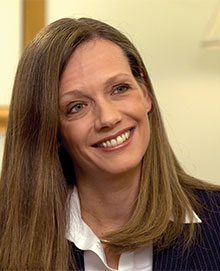Editor's Letter
Finance & Development, June 2017, Vol. 54, No. 2
Tomorrow's Workplace

It seems fitting that we are launching our redesigned magazine with a cover dedicated to millennials and the future of work. But while Finance & Development has mainly changed its appearance, not its content, young adults may have to make more fundamental adjustments to keep pace with the requirements of tomorrow’s workplace.
For a start, there is the changing nature of work itself. Whereas baby boomers and Generation Xers stood a good chance of landing a regular full-time job with benefits (such as paid leave and a generous pension), today’s young people find it much harder, working instead in what has been dubbed the “sharing economy.” About 40 percent of independent workers in the United States who make a living as freelancers are millennials, according to New York University professor Arun Sundararajan.
Then there is the fact that millennials got their timing horribly wrong, as they began to enter the workforce during the most severe global economic crisis since the Great Depression. In many countries, youth unemployment spiked at over 20 percent of the workforce, and it remains stubbornly high.
And technology is a double-edged sword for millennials. The digital economy has enabled the creation of millions of new jobs, but artificial intelligence and robotics may soon displace even complex human activities such as driving a car, providing health care, and giving legal advice.
What to make of it all? We asked millennials around the world. One of them, Kathy Gong of China, captured the spirit of optimism—coupled with fierce determination to create a better society—that drives many millennials. “Our future depends on the young people because they are at the core of creativity, the force behind breakthrough innovation, advocates for a fairer society, and drivers of economic growth and societal improvement,” she says. Gen Xers and baby boomers, please step aside.


